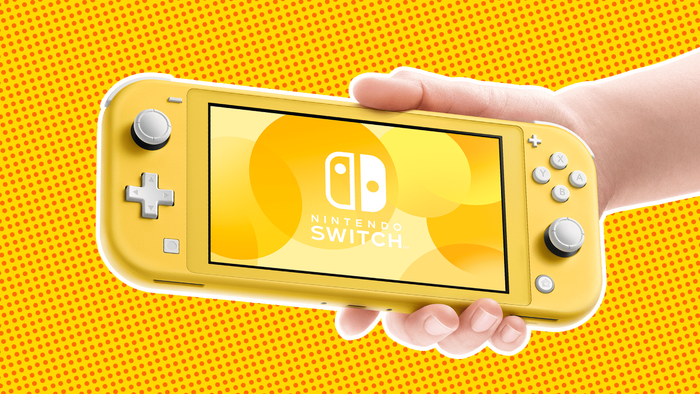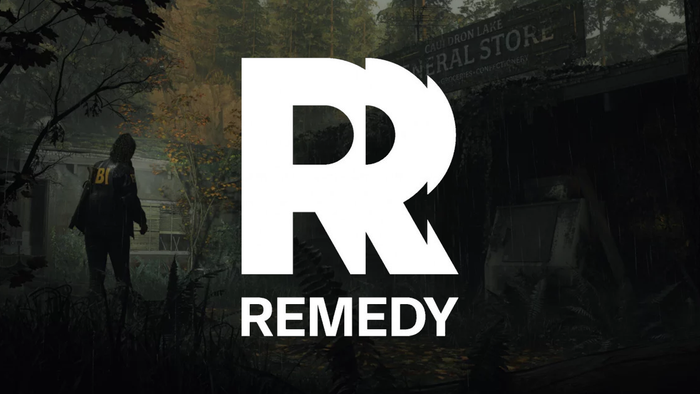What would a psychology student be doing at a games studio?
What is actually like interning at a studio especially as someone who is not a programmer or artist?

This was the first question I asked myself when I was told about the opportunity after having only done one year of university. Surely they would know much more about this area than me? Without really knowing, I said yes and I’m glad I did.
I was never a heavy gamer, I grew up in the era of the Sega master system 2, Game Boy Color and Nintendo 64, and would now consider myself a lover of story based games with titles such as: The Wolf Among Us, Brothers: A tale of two sons and Until Dawn being ones I will always return to. My experience with games has been largely emotive and it’s what makes games memorable for me.
Studying at university means that I’ve been able to meet many interested working in games. We have our own game design and gaming societies filled (mostly) with aspiring programmers, with some designers, artists and audio people mixed in. As a result I’ve been able to see how games are designed with little to no financial investment and not only the effort that’s poured in, but also the sheer excitement students can get out of it.
It is these experiences that have been paramount in furthering my curiosity about the human factor within games. This is especially true of the free to play (F2P) market where you have to appeal to a broad audience with a range of identities and tastes; this is where psychology is essential, in answering these difficult questions.
Having chosen to study psychology, I’ve learnt a little about what’s actually motivates people and how that can be influenced (e.g. Skinner’s box and the positive reinforcement loop). It’s not uncommon to hear “I spent my teens playing World of Warcraft” or “OMG Candy Crush is ruining my life” and then they go back to playing the games because of those crafty reward systems (those ‘pings’ and cheers feel good), but I never made the link before. It makes sense, as there are some amazing resources out there such as Jamie Madigan’s ‘The Psychology of Video Games’, but there is not a great deal in this area due to how new it is. However, Psychology is becoming increasingly relevant, and has played an important role in the success of companies like King and Zynga who have utilised behavioural economics (the study of how psychological factors influence emotional decisions) to formulate the best experiences for the player. Because of this, being at the studio has been invaluable, as I’ve been able to research game design principles from a psychological perspective.
So, what did you actually do at the studio?
The studio is currently focused on producing (awesome) free to play games, an area I was weary of due to opinion articles suggesting that F2P is unethical. I decided to look at it from another perspective. Jane McGonigal a renowned game designer focuses on utilising technology to increase collaboration between players to make the gaming experience a positive one, one driven by internal motivations and desires. This is an approach I feel the studio takes and taking me on was proof of them wanting to enable that.
I feel ‘user experience (UX) psychology intern’ as a title probably fits best as to what I got up to.
I was given the task of trying to figure out what makes games by Ketchapp (Pop the lock), Supercell (Clash of Clans) and King (Candy Crush) so successful. Because of this, I did spend quite a bit of time at my desk trying to figure out what makes people want to come back to these games. Putting on my problem solving hat, I conducted desk research reading: articles, research papers and also books that may be of relevance (see image below). I found a wealth of information and having to prioritise and critically analyse what I found was tough, as I was creating a presentation that had to be easy to understand and not something that will result in cognitive overload. But being thrown in the deep end was motivating, it tested me to find out more about an area I knew very little of, so it was an incredible learning experience for me. For example, I learnt about how dark UX principles such as misdirection which influenced the success of Flappy Bird. Or the Kuleshov effect, where you use the context of the environment to help you understand what someone feels, for example some video game characters, such as the Terminator or even Mewtwo, have simplistic body language, therefore it’s important to have strong contextual design to portray character emotions accurately. I was also able to apply some things I had learnt from my studies such as how we can miss important things within a game if there are too many other things going on (inattentional blindness).

(Books on the applications of psychology in areas including player experience and game development)
I also spent some time playing games such as Hayday and Clash of Clans to see the application of psychological concepts and began to find it hard to pull away from the screen at times. It was quite ironic that I was meant to study these games to see why people cared so much about their virtual farms and guilds, but I ended up the same. I had a sense of ownership, something was mine, even if it was virtual but it still mattered to me. You get a sense of control, but also some reinforcement from the game itself that you’re doing great. This could be things like getting stars, having in game characters compliment you or even the sound of a till to imply that you’ve been successful in making money. It is small things like these that keep you hooked.

(It started off innocently enough…)
When I wasn’t working on my project, I got to know my colleagues. I met those in: analytics, art, animation, production, and programming and user experience. It was interesting to find out more about how they got into the industry and their experiences with it and I gained some invaluable tips for the future. It also made me realise how despite there being distinct roles, everyone’s work overlapped and linked together, this included how psychology is relevant to not just all of those areas, but many others as well.
There was always something going on at the studio and I was lucky enough to take part in some of these things. There are weekly ‘Braincamp’ session focused on someone giving an insightful talk on an area that they feel will be relevant to building a better game. The talk I listened to was audio and how key it is in evoking emotional responses and is essential to ensuring we are immersed within the game environment for a period of time. Alongside the sessions I also got an insight into how meta-games and in game economies work and provided my own ideas based on what I learnt. I also did some top level consumer insight, learnt about using social media to interact with consumers and wrote this blog piece of course!
I was also able to test and provide feedback for the company’s first self-made game. A match 3 game with insanely cute characters (who are reason enough to play) and the game was launched on IOS at the beginning of October. There was celebration at the office (with cake of course) and it was really nice to see the studio’s hard work.
What is it really like at a studio? (Honestly)
I was asked if I could read people’s minds because of my choice of degree, but the joke is on them because given the constant flow of cake and sweet treats in the studio it was pretty obvious what they were thinking about. The environment was laidback, but professional. You were provided the freedom to try out new ideas given you could justify it. It never felt hierarchal, even though there were team leads, managers and directors, everyone’s opinion was valued equally and taken into consideration, which provided a strong knit community. This also included the Angry Birds family that sat in on really important meetings at the ball pit (meeting area where gym balls were used as seats.)

(They’re very serious about their job)
I feel, that despite these things sounding like the obvious for a good work environment, they are what makes a good studio standout. It's not just about a company that loves making games but are also serious about making sure that people who play their games will love them too. So it quite literally is “all fun and games”.
Departing thoughts
I'm lucky enough that after my initial placement, I've been taken on to continue with my work whilst I balance it with my studies in my second year. I would class myself as a perfectionist, so typically enough believe I could do more and contribute greater. I've seen and participated in many awesome things but there is always more to learn and explore. I’ve only just scratched the surface, looking at the influential role psychology has in gaming, but it has made me more curious to find out more. There are things like: how could neuroscience be applied? How social is ‘social’ gaming? What happens when your market knows of the psychological principles you are using and do they really even care? And will the F2P market last given the rise of virtual reality experiences or market saturation? I could go on.
So, to answer my initial question: surely they (the studio) would know much more about psychology than me? They most likely do, what I’ve found however, is that my work provides names and empirical evidence to support all aspects of game design, such as sound, gameplay and user interface, linking together the psychology of the UX with the game mechanics behind it. It’s a two way learning street, I’ve been able to introduce new concepts but I’ve also been in a place with people who have worked in the industry for years, opening my eyes to things I had never even considered or known of before.
I’ve met a diverse range of people, whose passion for games is contagious in an environment where the values of embracing change, pushing the boundaries and putting the player first are at the heart of it. Being here has given me an insight into life at a well-regarded games studio and I have become a firm believer of the idea that the player is central to the design, therefore things like consumer insight and focus testing must be prioritised.
Despite being an unorthodox choice to gain work experience as a psychology student within the games industry, I feel like there is no better place than here to start. There is a wide interest in marketing, production, human resources, or what I did (research) and so many other things within the industry so you are spoilt for choice. You are pushed and challenged, helping you gain employable skills (that we all worry about developing) in a supportive environment.
I see it as, you’re not finding out about motivations and behaviours to design a product, but to design an experience.
Read more about:
BlogsAbout the Author(s)
You May Also Like













